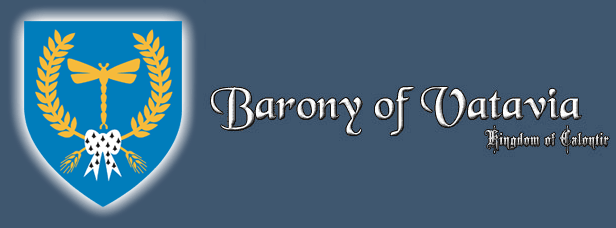
Movies in History
by Friar Thomas Bacon (David Moreno)
Orignally published in the December 1999, A.S. XXXIV issue of the Dragonflyre, a publication of the Barony of Vatavia.
Over the past year I have been reviewing recently released movies and their reflection on actual history. This month Iíll take a peek at some of the movies of the past. As I didnít go back and viewed this again so Iím relying on my memory and impressions of these movies. I picked this set not because they are the most historically accurate, but because they are the mostly likely to have been seen. They also would make an excellent beginning to a medieval video collection (just in time for Christmas). If anyone wishes me to do a more detailed review of these or other movies (Iíve counted over 60 candidates) let me know.
- A Man for All Seasons
- This is a movie that can talk you to death as it consists of almost entirely of the various characters sitting in rooms discussing the developing issues. This takes its heritage from the play of the same name. The drama arises from what price Thomas More will pay to stay true to his convictions in the face of Henry VIIIís wrath. The principal issue is the divorce of Katherine of Aragon and the break with Rome. While generally true to history, the situations are slightly contrived to allow it to make its philosophical points.
- Becket
- Another movie about the clash between a man of conscious and a king, in this case Thomas Becket and Henry II. While there is a bit more motion then the previous movie, it still is a highly philosophical movie on many of the same points. It is fairly true to the general sweep of events and the nature of that time and place. And neither character comes off very likable, though they are true to what is known of them.
- Camelot
- Only on the most general of points does this retelling of the Arthurian legend match the medieval original. But could there been a Society without it? It encapsulates within it all the pageantry and ideals associated with the Middle Ages. To large degree, that many would be reluctant to admit, for the population at large this film forms the images of what are the Middle Ages.
- Monty Python and the Holy Grail
- Another film that has nothing to do with history, but everything to do with the Society. Hardly an event goes by that someone doesnít make an allusion to or quote a line from this movie. And I donít want to think how much court shtick it inspired. It is an antidote to taking anything we do too seriously. Its weakest point is its ending, but that is a small price for all the fun that goes before it.
- The Adventures of Robin Hood
- Though many have played Robin Hood, for most, it is the image of Errol Flynn that first to comes to mind. This film set the standard for all Robin Hoods to come. While the actual legends are anachronistic themselves, this film added addition anachronisms that have been perpetuated since. While it makes hash of history and legend, only the tellings of King Arthur have done more to inspire others to seek out the Middle Ages.
- The Lion in Winter
- This is arguably Hollywoodís best depiction of the Middle Ages. Not that the event it portrays actually occurred, but it best captures the personalities involved. This specific event was Henry IIís gathering of his family to solve the succession problem after the death of his eldest son Henry. All tensions of this very dis-functional family are now display. The biggest mis-step is the implied homosexual attraction between Richard and Philip of France, a hot topic of historical discussion when the movie was made but now deemed unlikely. The great success of this movie is that it made very real people out of these larger then life historical personages.
- The Long Ships
- The basic plot line of this movie is a group of Vikings prowling the Mediterranean in search of a treasure throve. While the specifics are fanciful, they were not improbable. What makes this movie interesting is that it features two groups, Vikings and Muslims, that are more often featured as the villains. While not entirely free of stereotypes, it does attempt to show them as people of their time and culture.
- The Six Wives of Henry VIII
- This is an expansive look at the life and times of Henry VIII, a mini-series before the term was coined. It is generally well done with no glaring lapses in historical accuracy. How many of the turning points portrayed are just dramatic representations would require extensive research. An interesting side note is that this production helped kick start the revival of Renaissance music.
- The War Lord
- This is the grittiest of all the movies. Its simple plot is that of a Norman Lord attempting to establish his authority over some backwater part of England shortly after the Conquest. His infatuation of a local beauty provokes a revolt and a siege on his tower. Since it was made in the sixties, it is not as graphic as current movies, but nevertheless no less successful in invoking the brutality of the warfare of that time. The central point of the drama is the ďright of first nightĒ, a right that was more legendary then actual in the Middle Ages. A strong antidote to the glamour of the Middle Ages.
Copyright © 1997 - present His Lordship Friar Thomas Bacon (David Moreno). All rights reserved.